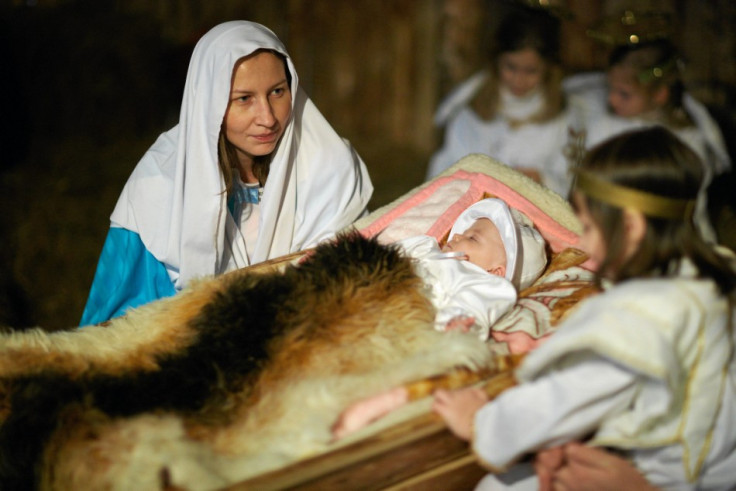Mary and Joseph Were 'Asylum Seekers' and Harry Potter is 'Like Jesus'

The Bible's Nativity story is thought of by many as a touching tale of the humble beginnings of the Christian god.
Cosy, twee images of the stable setting for Jesus's birth litter Christmas cards, while schools across the country get cherubic children to portray the scenes in heart-warming plays.
But an academic is drawing attention to the numerous gritty political themes running through it - even calling Mary and Joseph asylum seekers.
Dr Stephen Holmes, a senior lecturer in theology at St. Andrews University, says "the number of political themes in the story is striking" in his report for religious think tank Theos.
He has compared Harry Potter to Jesus in the past, saying the Harry Potter books are "profoundly Christian".
"It is a government census that forces Mary and Joseph to travel to Bethlehem, and that causes such overcrowding in the town that she is forced to use a stable as an antenatal suite," writes Holmes.
"Despite the sanitised images on Christmas cards, it does not take very much thought to realise that a stable is not the most hygienic setting for a birth, and so we can add healthcare provision to the list of themes referenced.
"Herod is a dictator afraid of his position, and so orders his troops to commit an act of barbarous brutality in an attempt to eradicate a perceived threat.
"The family is homeless when Jesus is born; their flight into Egypt turns them into asylum seekers.
"It seems almost certain (given what we know of marriage customs of the day) that Mary was 14, perhaps 15, and, of course, as the story is told, Joseph is not her child's father."
Holmes added: "Government bureaucracy; healthcare provision; brutal dictatorship; homelessness; asylum seekers; a single teenage mother - with this story in view, it might seem that we simply have to do politics at Christmas!"
A study of British perceptions of Christmas by the report reveals that 83 per cent of people think it's "about spending time with family and friends".
Just 34 per cent think it's a time to challenge poverty and economic injustice, while only 19 per cent think it's a time to challenge global political oppression.
This is wrong-headed, argues Holmes, given the fundamentally political nature of the Nativity story.
"The Nativity story is many things, but it is certainly, amongst them, a powerful human drama of how the lives of ordinary people can be disturbed and destroyed by political systems and decisions, and how God cares and interferes in these affairs to 'fill the hungry with good things.'" he writes.
"Nativity plays and carol services are not - or should not be - safe, comfortable, 'feel-good' moments through which we escape from reality, but rather occasions of truth and hope, where the faithfulness of God breaks through into the ordinary, where we are invited to consider how God intervenes in the business of politics."
© Copyright IBTimes 2025. All rights reserved.






















